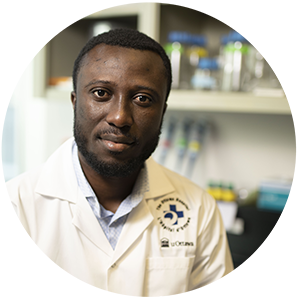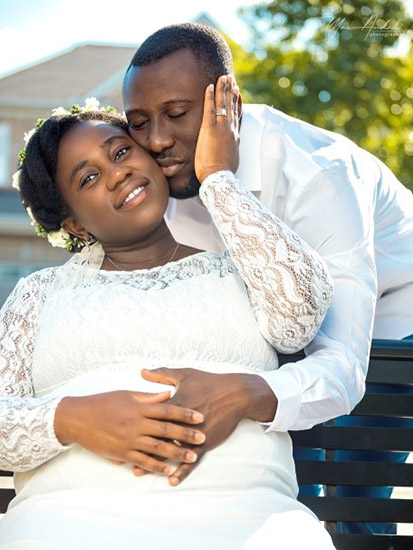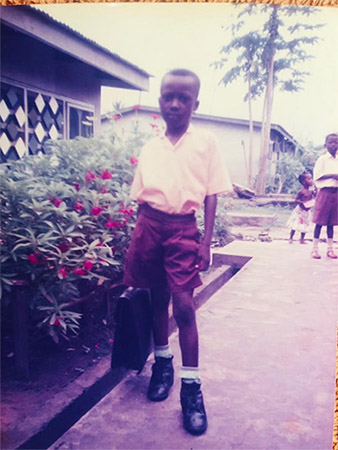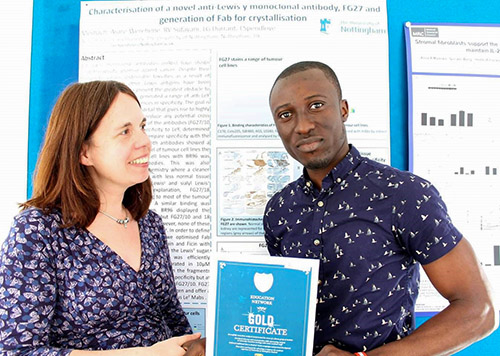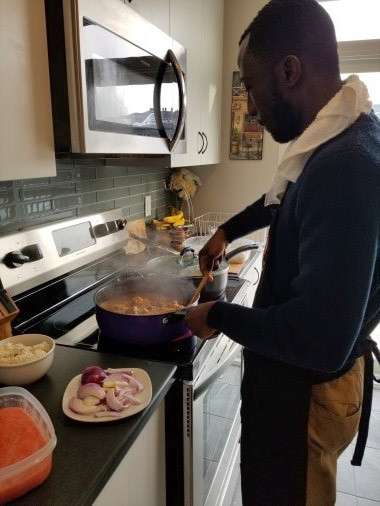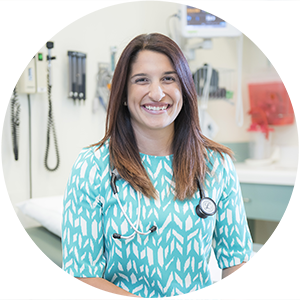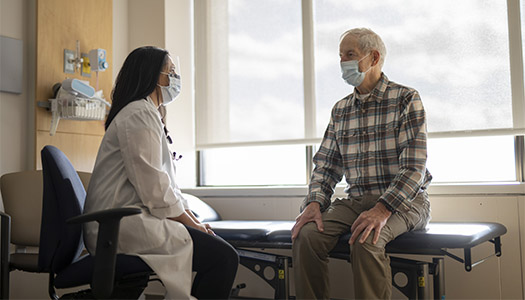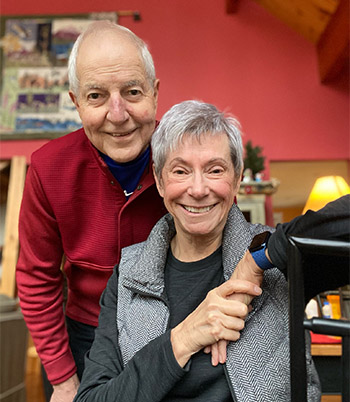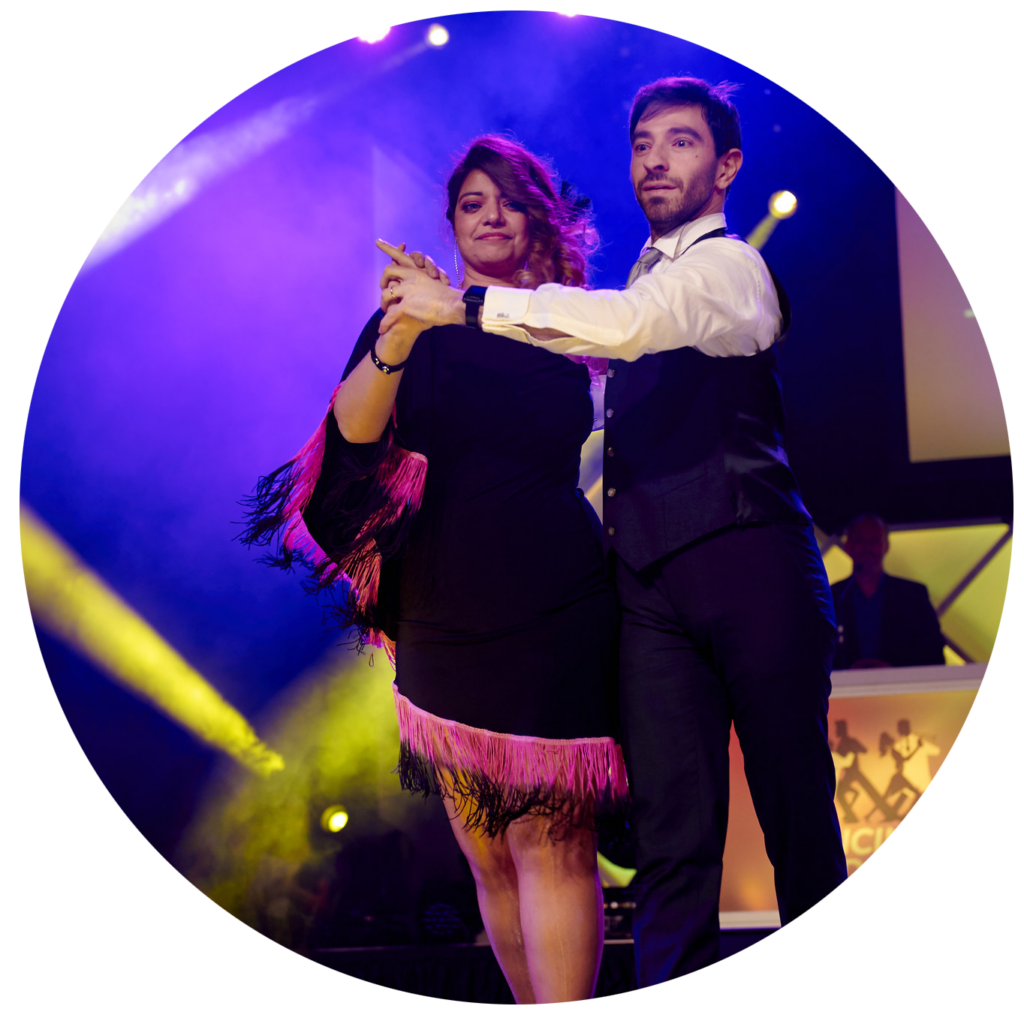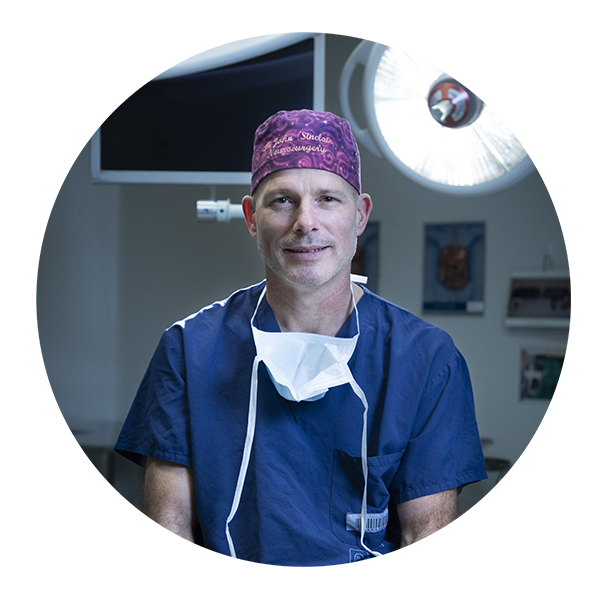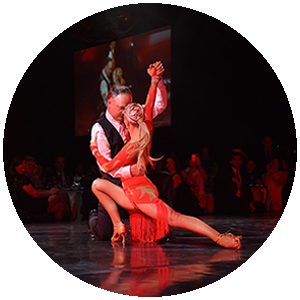
Dr. Mark Clemons’ keen sense of humour and sharp wit have earned him an enduring and respected reputation among cancer patients at The Ottawa Hospital, where he is a medical oncologist. His patients regularly comment on the positive difference his unique approach has made in their care.
Born, raised, and educated in the UK, Ottawa was fortunate to entice Dr. Clemons to join our team in 2009.
In addition to his work with cancer patients, he is also a medical oncologist and scientist at The Ottawa Hospital and led the creation of REaCT (Rethinking Clinical Trials), which helps remove barriers for patients participating in clinical trials.
Staying true to his unique personality, Dr. Clemons did not disappoint when he competed onstage in front of a sold-out crowd of 800+ to win the coveted Medicine Ball Trophy during Dancing with the Docs in 2017.
Q: When did you realize you wanted to become a doctor, and why oncology?
A: There wasn’t an epiphany moment, and looking back on 30 years of clinical practice, I don’t think I could have done anything else. I think the beauty of medicine is that it allows you an amazing opportunity to sample multiple subjects from basic science, physiology, psychology, through to global healthcare disparities. In addition, oncology also offers frequent and often raw exposure to the challenges we all face as human beings. Quite simply, joy, suffering, and death surround us all the time. Oncology has given me an amazing opportunity to learn about and experience the whole smorgasbord of human existence.
Q: You’re from the UK originally, why did you choose to work at The Ottawa Hospital?
A: I had finished my doctorate and had what my boss described as “the best job in the world” lined up in the UK, and I realized I didn’t want what someone else perceived as “the best job in the world.” One afternoon I saw an advert that said, “do you want to come to Canada and research breast cancer?” I think life is about serendipity and taking opportunities to travel when they come. Too many people spend their lives in one city, but life is about getting experiences in different places. So, off I went to Toronto for a couple years. Then the unexpected and unplanned scenario of (English) boy meets (Canadian) girl occurred. Canadian girl then explained that English boy’s life would be much better and much more straight forward if he simply did whatever she told him to do. After subsequent jobs in the UK and back in Toronto, the tremendous opportunity to come to Ottawa appeared.
Q: Your patients regularly comment on how your personality and humour help them through difficult times. Can you tell us a little about your approach with patients?
A: I think personality and humour are not the same thing. My wife and kids will certainly tell you that I am not funny. Not all patients want humour, but most people want to be treated as real human beings. The reality is, life on the whole can be quite funny, and we’re all in this game of life together. As so many patients have said to me over the years, “if you don’t laugh, you’ll cry.” My philosophy is not to be terrified of cancer, but to treat the cancer with respect it deserves so you can help the patient and their family make their own personal way through a very challenging journey.
Q: If someone has just been diagnosed with cancer, what advice would you give them?
A: Despite the feeling of your world turning upside down, try not to panic, and try to get information from a reputable source. Once you have the fundamentals of information, you’re in a much better place for decision making.
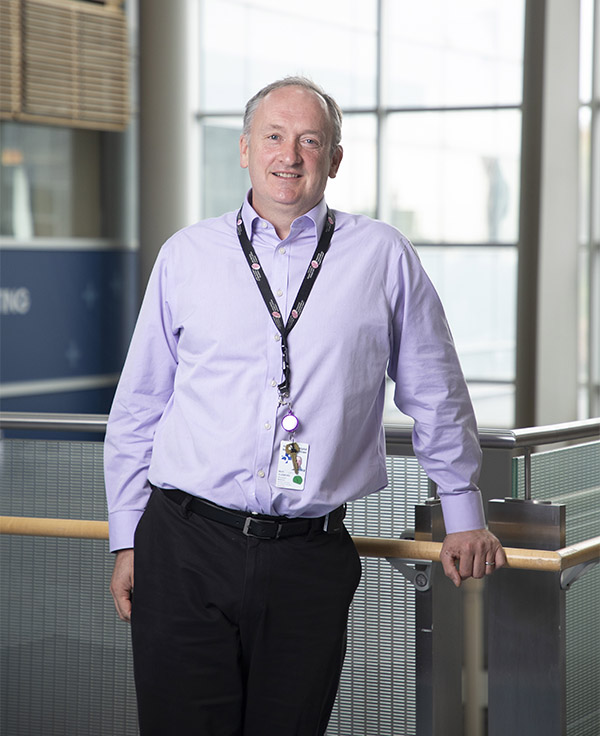
Q: As an oncologist, what is the most exciting advancement you have seen in recent years in the field of cancer care?
A: Treatment options are night and day compared with when I started – they’re less toxic and more effective. I’ve been in practice for over 30 years, and what is fascinating is how much longer, and indeed how much better, people are living. A lot of these advances were driven by public health and family medicine working on such broad topics as cigarette smoking cessation, vaccinations, blood pressure, and cardiovascular risk management, to name but a few examples. The increasing average age of our patients presents itself with new challenges as we try to manage cancer patients with increasing non-cancer related health issues. This is likely where my interest in reducing the toxicities of so many of our treatments comes from.
Q: You’ve treated Alison Hughes, who was first diagnosed with breast cancer at 37. What has defined her case?
I think Alison is an amazing woman. She is young and has such enthusiasm for life — something her breast cancer is trying to rob her of. We have the availability of clinical trials, which she has been involved with, including REaCT (REthinking Clinical Trials). The REaCT program is Canada’s largest practical trials program, which time and time again shows we can treat patients with more personalized therapies with significantly less cost to the patient and the healthcare system. REaCT has received amazing funding from The Ottawa Hospital Academic Medical Organization (TOMAMO).
Q: What led to the creation of REthinking Clinical Trials (REaCT) at The Ottawa Hospital?
A: It was the realization that, despite cancer now being the most common global cause of premature death, the amount of practical and applicable research being done is less and less. Also, the highly preselected patients entered into clinical trials don’t usually reflect the reality of patients we see in clinical practice. This is, in part, because the rules of entry to traditional clinical trial select towards younger, richer, fitter patients than we’re seeing in clinical practice. We realized that by involving our patients and their families in the types of studies they want performed, we could do research that actually impacts patient care. Then, by designing trials that had less restrictive eligibility criteria through the REaCT program, we could actually perform true practice-changing research. Ottawa has been the ideal place to lead such a program as we serve a large patient population and have great clinical trials infrastructure, knowledge synthesis, and the Ottawa Methods Centre’s resources in place to enable such studies to be performed. REaCT is one of those ways we’re challenging dogma, we’re saying, “Why did we do that? What is the evidence?”
Q: In addition to treating cancer patients, you are involved in what has been described as an “eclectic” range of research, touching on things like retirement planning and oncologists’ quality of life. Can you describe your research work at the Ottawa Hospital Research Institute?
A: I think it reflects my personality, which is one of a broad interest in many topics, as well being very aware of the realities of life. If there is one overarching thing we can learn from the COVID pandemic, it is a reminder of the foibles of the “human condition.” For me these include the facts that we all have a limited time to live, our period of life with good health is variable, and ultimately it is our friends and family that add the greatest qualities to our lives. To paraphrase far greater minds than mine, “no one on their deathbed wished they’d spent more time at work.” I constantly question dogma and find it abhorrent to do things a certain way just because it’s always the way we’ve done them. For me, choosing to take the easy path isn’t something I’m interested in. I would rather be able to say to a patient, “I really don’t know the answer to your question, I’ll try to find it.” Too many people still find the inability to live with doubt far too uncomfortable. Perhaps this should be added to my list of human foibles?
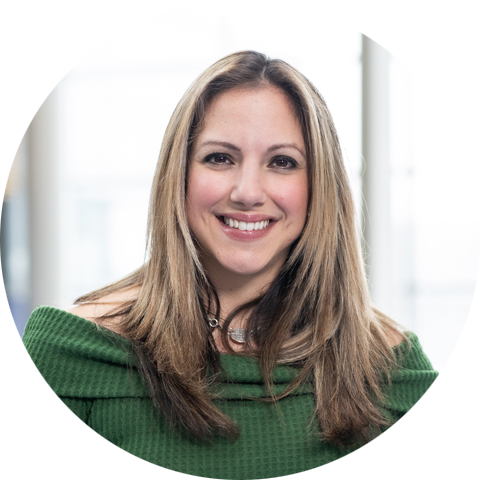
“As soon as he walked in the room, he made me laugh. He takes away the fear. He’s incredible.”
— Gina Mertikas-Lavictoire, REaCT trial participant says of her first meeting with Dr. Clemons
Q: How does support from the community help advance cancer research?
A: There are so many great ideas going on here, but without the funding, they won’t go forward. Philanthropy, in its broadest definition of the desire to promote the welfare of others, is quite simply an essential component of the human condition.


